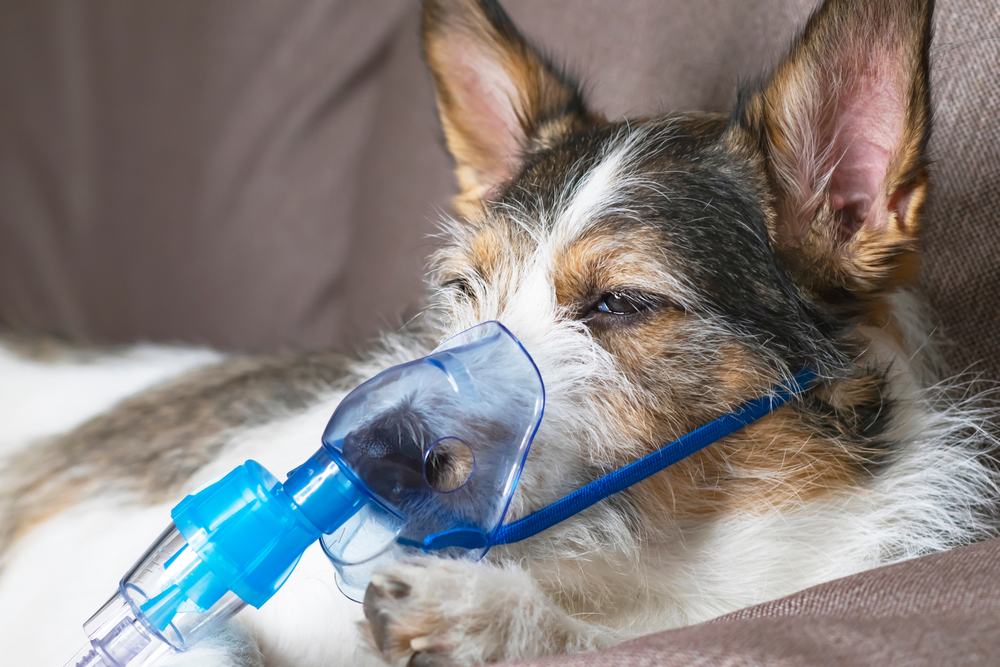Canine Respiratory Issues, Kennel Cough, and Asthma
Just like humans, dogs are susceptible to certain illnesses including respiratory ones. Diseases like kennel cough, asthma, and other canine respiratory issues could be transferred through the air or through touching a contaminated animal or surface.
If your dog is struggling with a respiratory issue, it is important to figure out which one. Use this guide to learn more about these issues and how to keep your dog healthy and his breathing clear.

Canine Kennel Cough Basics
Kennel cough is a disease that affects a dog’s respiratory system. It is transferred easily between animals. Although it is easily treatable in many dogs, it can be very dangerous for young, old, or otherwise immunocompromised dogs.
Symptoms of kennel cough include:
- A cough
- A runny nose
- Above average sneezing
- Disinterest in food or activities
- A low-grade fever
If you suspect that your dog has kennel cough, it is important to schedule a veterinary appointment. The vet can make an official diagnosis and prescribe antibiotics if necessary. Many dogs just need a little extra rest to recover. You might want to switch to a harness for walks during recovery so you do not further irritate the trachea.
If your dog is often around other dogs (at daycare, boarding, or the dog park), you should get the bordetella vaccine. This can lower the risk of your dog catching kennel cough in the first place.
Canine Asthma: What You Need to Know
Asthma in dogs is a direct response to an allergen. If they come into contact with an allergen, the throat becomes inflamed, which makes it difficult for air to reach the lungs. Dogs can experience asthma attacks that range from mild to severe. It is more common in small dogs, but has been seen in larger breeds as well. Although some asthma attacks are over quickly, others can lead to long-term problems for your dog.
Asthma symptoms include:
- Regular cough
- Decreased energy
- Trouble breathing
- Rapid breathing
- Panting with an open mouth
- Wheezing
- Blue tint to gums (shows oxygen issues)
- No appetite
If you suspect your dog has asthma, it is important to visit the vet as soon as possible. Your dog might need steroids to decrease the severity and prevent permanent lung damage. The vet can also try to find the reason for the attack to help you avoid more in the future.
Canine Respiratory Issues
There are a range of other canine respiratory issues that could make it hard for your dog to breathe normally. Pay attention to your dog’s behavior and overall temperament.
Some of the most common are:
- Tracheal collapse
- Rhinitis
- Upper respiratory infections (like canine influenza)
- Pneumonia
- Bronchitis
- Lung diseases
As soon as you notice any prolonged cough, difficulty breathing, or changes in behavior, you should schedule a vet visit. If there are any canine respiratory issues at play, it is important to get it diagnosed and treated as soon as possible.
The specialists at OVRS are always here to help you and your pets. From allergy care to internal medicine, our specialty services provide the care you need. To learn more, please call (248) 334-6877.


